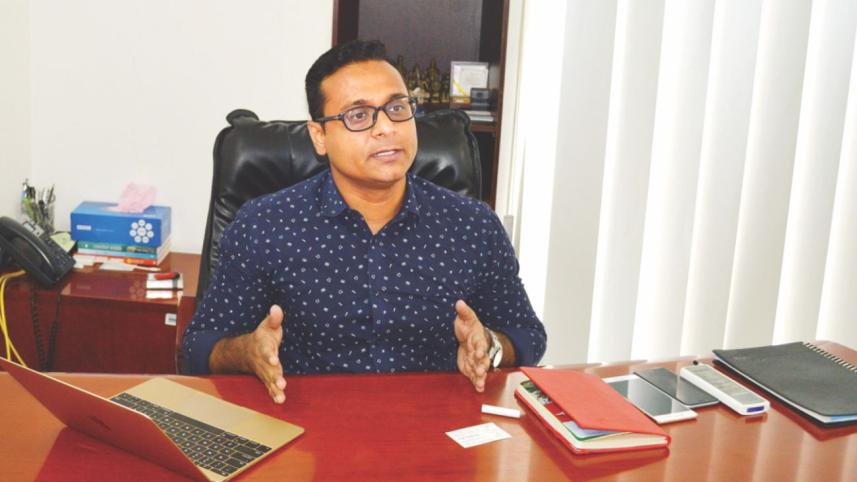High tax hinders local assembly of handsets: Symphony

Bangladesh's mobile handset market has reached maturity and Symphony has played an important part in the growth, said a senior official of the local mobile phone brand.
The company plans to set up an assembly plant in Bangladesh but the government's tax structure is being the damper, Rezwanul Hoque, senior director of Symphony Mobile, told The Daily Star in an interview.
Symphony currently imports handsets manufactured in China, for which it is subjected to 25 percent duty.
But to assemble the handsets locally, as it plans to do, the company will be subjected to tax upwards of 37 percent.
“We would essentially be penalised for assembling the handsets in Bangladesh,” he said, while urging the government to offer tax support as the industry would be able to export handsets eventually.
Here, India can serve as Bangladesh's model: the neighbouring country's government kept a 10 percent gap in taxes and duties for domestic assembly and import of handsets.
If the government gives the local manufacturers some tax support, some global giants might become interested in relocating their factories to Bangladesh, said Hoque.
The labour cost is increasing in China and they are preparing to push some of their factories out of the country.
“If we want to grab the opportunity, this is the right time. If we don't do it, Myanmar or Nepal or any other country will,” he said, adding that India, which flagged off domestic handset assembly three years back, already in prime position.
Currently, Bangladesh's annual handset market size is about Tk 7,000 crore and by 2020 it will hit Tk 12,000 crore, according to Hoque's estimate.
And almost 80 percent of the handsets used in Bangladesh are of local brands, which are manufactured in the same factories as those from international brands.
The reason for the popularity of local brands' handsets is that their quality is on par with those of international brands but they are significantly cheaper.
“The customers in Bangladesh are very savvy and price conscious,” he said.
Hoque said Symphony is undoubtedly the market leader in both the smartphone and feature phone segments in Bangladesh.
It became the market leader in 2011 and has been maintaining the position since, by a comfortable margin.
“One in two smartphone users in Bangladesh uses Symphony handsets,” he said, adding that the company is doing well in feature phone segment as well, where it has around 50 percent market share.
The industry has been growing at 10-15 percent and Symphony, which was established in 2008, has been growing at that rate too, according to Hoque.
Going forward, the company plans to attract both the youth and the marginal people with its product offerings.
It also plans to introduce an e-store through which its products can be purchased.
In India, 30 percent of the 24 crore handsets sold every year are through e-stores, according to Hoque. But in Bangladesh, about 1 percent of the handsets sold are through the online platform.
“Customer education is a challenge here. India introduced e-commerce ten years back but we are just introducing this segment of trading.”
Nowadays, customers, especially the youths, research about the handset specifications and performance before making a decision.
“They no longer go to the market, check out a variety of sets and then choose one. They now make the decision beforehand and go to the market to buy that handset. So we are hopeful e-commerce will take off in a big way.”
Hoque also expressed dissatisfaction over the sudden tax increase on mobile phones.
A few years back, the tax on mobile phones was 10 percent, but two years back it was raised to 25 percent.
The tax hike has led to the rise in the price of smartphones, which will ultimately put the brakes on the growth.
When the tax was 10 percent, the gray market size was less than 10 percent. But after the tax hike, the gray market expanded manifold.
Subsequently, Hoque urged the government to rethink the tax structure.
“There is no alternative to increasing smartphone usages if the country wants to become digital.”



 For all latest news, follow The Daily Star's Google News channel.
For all latest news, follow The Daily Star's Google News channel.
Comments